Shavuot: A Celebration of Jewish Tradition and Heritage on May 30
The Significance of Shavuot in Jewish History and Culture
Shavuot, also known as the Feast of Weeks, is a prominent Jewish holiday celebrated on the sixth day of the Hebrew month of Sivan. This year, it falls on May 30, and it is a time for Jews around the world to commemorate the giving of the Torah (the first five books of the Hebrew Bible) to the Israelites on Mount Sinai.
A Time for Rejoicing and Remembrance
During Shavuot, Jews gather in synagogues to listen to the reading of the Ten Commandments and to recall the moments when their ancestors stood at the base of the mountain and received the laws of God. The holiday is filled with festive meals, traditional songs, and special prayers, making it a joyful and sacred time for Jewish families.
Bringing Nature into the Celebration
In addition to the spiritual significance of Shavuot, this holiday also has agricultural roots. In ancient times, Shavuot marked the beginning of the summer harvest. To commemorate this, many Jewish homes are decorated with flowers and greenery, and traditional dairy dishes (such as cheesecake and blintzes) are served as a reminder of the fertile land of Israel.
The Tradition of All-Night Torah Study
One unique aspect of Shavuot is the tradition of staying up all night to study the holy texts. This custom, known as Tikkun Leil Shavuot, has its origin in the Kabbalistic writings of Rabbi Isaac Luria in the 16th century. This all-night study session is a way for Jews to reaffirm their commitment to the Torah and to celebrate the divine wisdom contained within its pages.
The Modern Relevance of Shavuot
While Shavuot is deeply rooted in ancient Jewish history, it has modern-day relevance as well. Today, this holiday is a time for Jews to reflect on the ethical principles found in the Torah and to symbolically renew their acceptance of God’s laws. It is also an opportunity to reconnect with the community and to celebrate the diversity and unity of the Jewish people.
Conclusion
As we celebrate Shavuot on May 30, let us embrace the traditions and values of this holiday and reflect on the impact they have on our lives as individuals and as a community. May this day bring us closer to our heritage and to each other, and may it remind us of the eternal relevance of the Torah in shaping our values and beliefs.
Shavuot is a significant Jewish holiday celebrated on May 30 that commemorates the giving of the Torah to the Israelites on Mount Sinai.
This holiday is a time for Jews to celebrate and reflect on their heritage and the values found in the holy texts.
Shavuot has both spiritual and agricultural elements, as it marks the beginning of the summer harvest and the giving of the Torah.
Special prayers, festive meals, and traditional songs are all part of the joyful celebrations during Shavuot.
The tradition of staying up all night to study the Torah is a unique aspect of Shavuot known as Tikkun Leil Shavuot.
Shavuot is not only a celebration of ancient Jewish history, but also has modern-day relevance, serving as a reminder of ethical principles and the unity of the Jewish community.
As we celebrate Shavuot this year on May 30, let us reflect on the impact of its traditions and values in our lives and reconnect with our heritage and community.
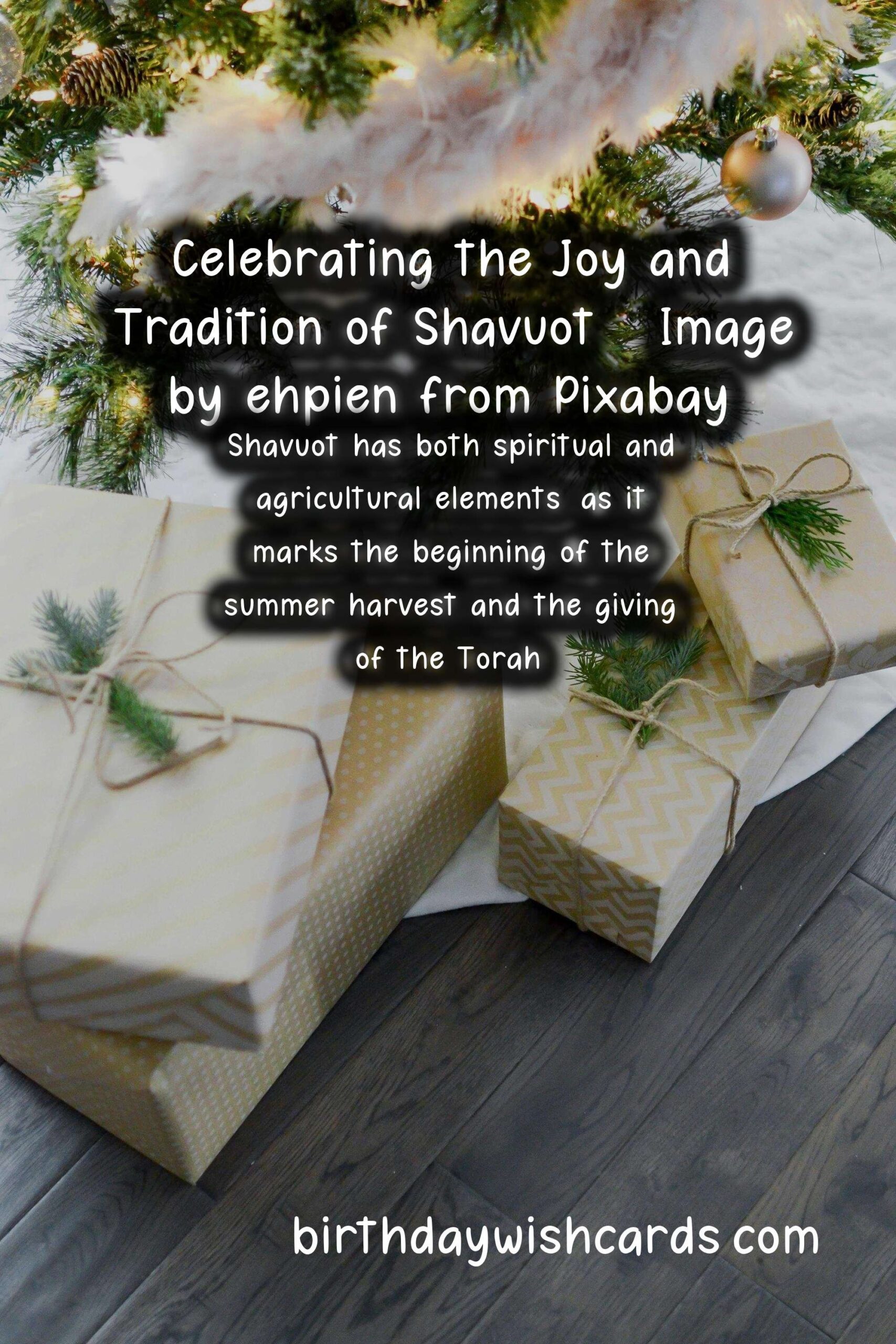
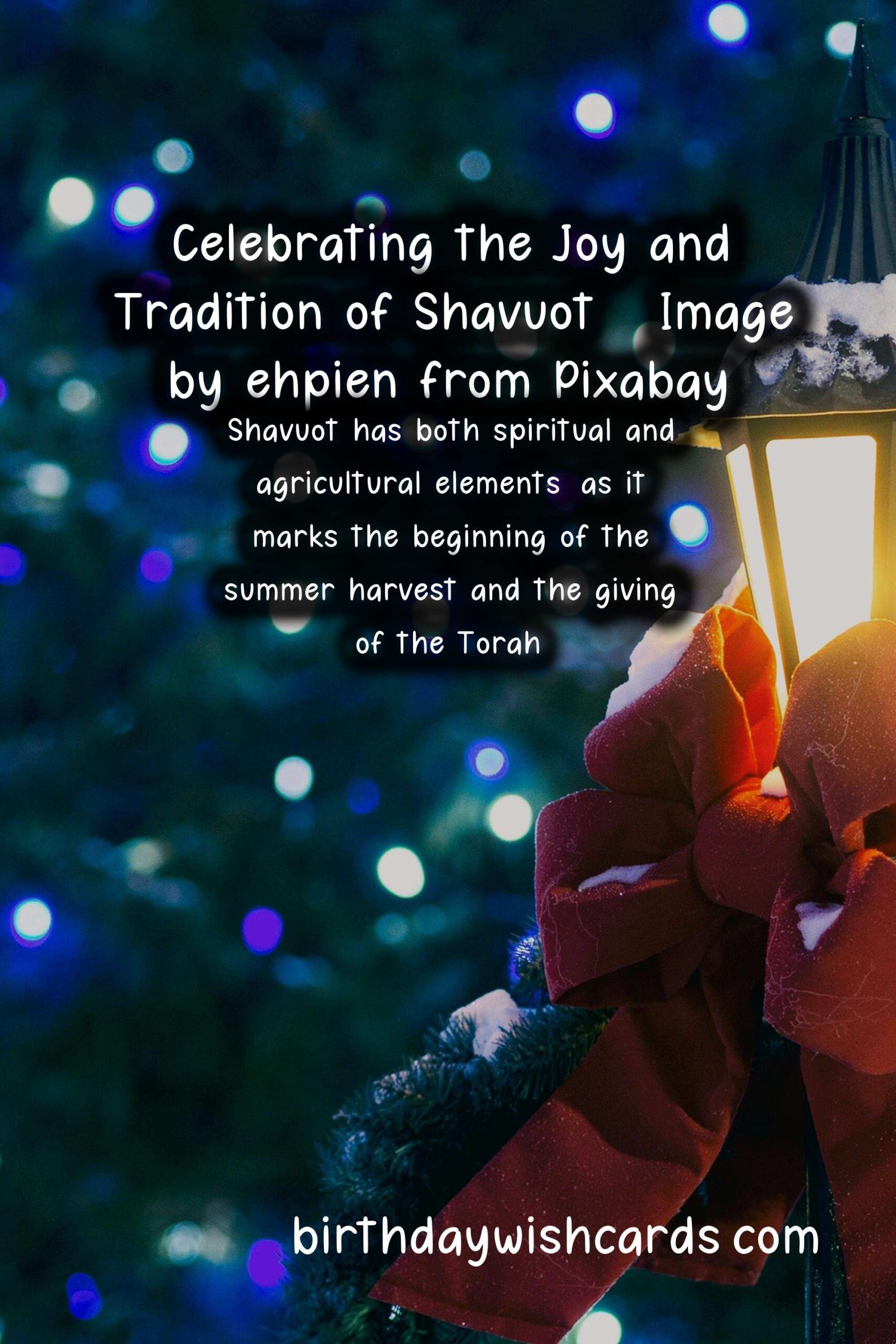

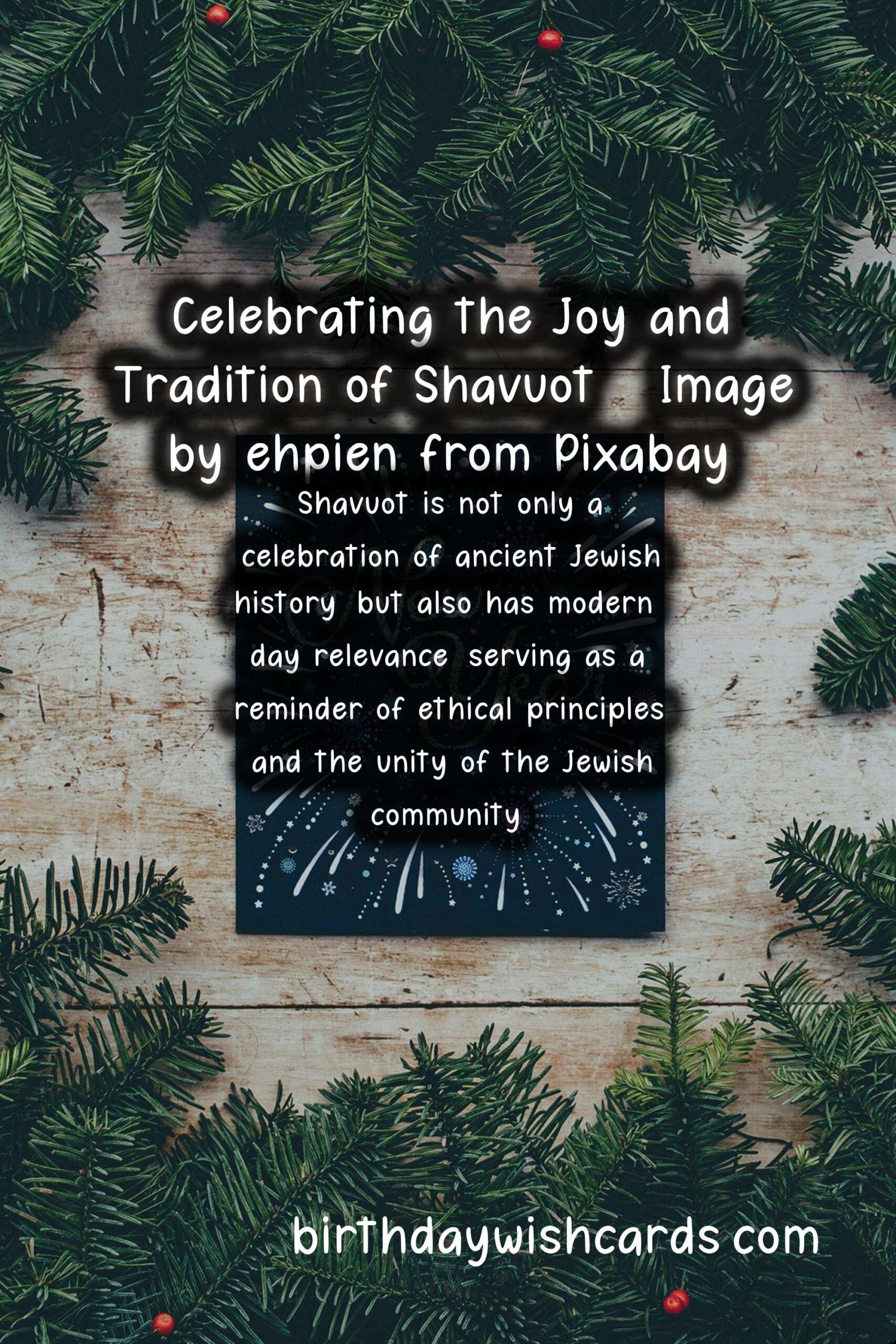



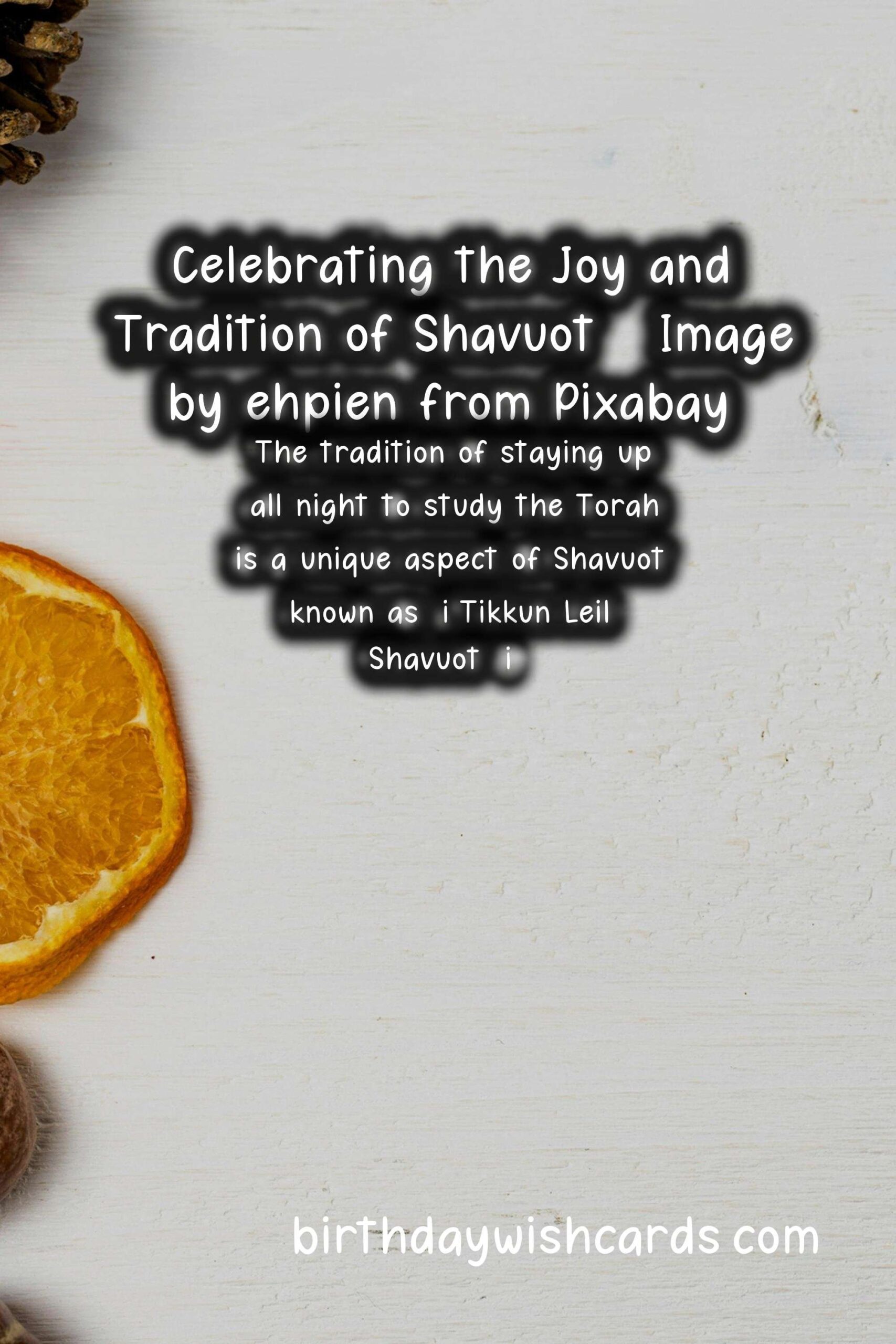

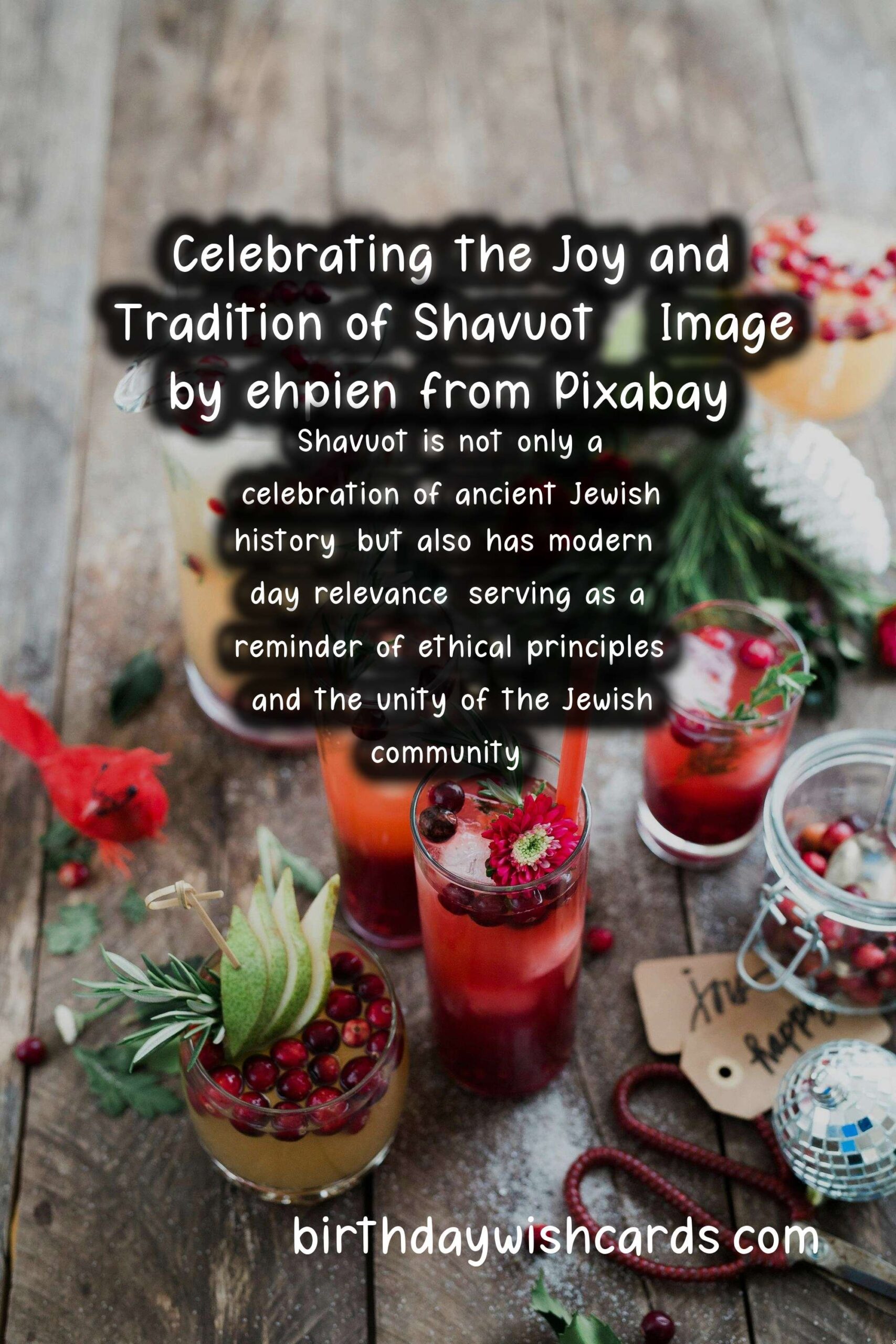
#Shavuot #JewishHoliday #May30 #Torah #Traditions #Heritage #Values






